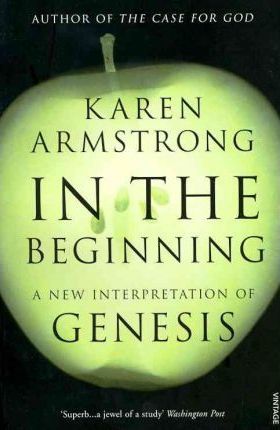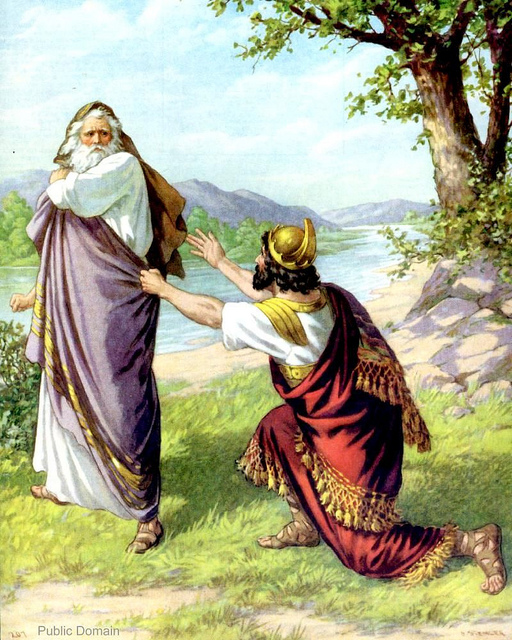Ruth-less-ness is a state of not being like the biblical Ruth. She was famed for her uncommon capacity for love, compassion, patience, industry and faithfulness. She would later be renowned as the great-grandmother of King David and an ancestor of our Lord Jesus Christ, cutting across Judeo-Christianity in a manner very much like the patriarchs. That is not even half her story.

Ruth, whose exemplary character is immortalised in scripture, did more than lend her name, or the antithesis of her values to the English language. Her life and story is a challenge to some giants of history and faith. She invites us all look at the foundation of our belief systems and, where necessary, raze it.
She was a Moabitess. Her nation had been excluded from admission to the community of the people of God because they denied Israel a safe passage through their land during the Exodus. Worse, they hired Balaam to curse the children of God. From that account, her marriage to a Jew is not just merely an instance of unequal yoking. It is a direct transgression of a Deuteronomic law:
“An Ammonite or Moabite shall not enter into the congregation of the LORD; even to their tenth generation shall they not enter into the congregation of the LORD for ever: Because they met you not with bread and with water in the way, when ye came forth out of Egypt; and because they hired against thee Balaam the son of Beor of Pethor of Mesopotamia, to curse thee.” [1]Deuteronomy 23:3-4
Whereas that law dealt with the specific experience Israel had of the Moabites, other provisions in Deuteronomy forbade marrying outside of the faith. [2]Deuteronomy 7:3-5 From whichever direction one approached it, Ruth’s marriage to a Jew would have attracted ill feeling among Jews who were zealous for the law. The possibility that mixed marriages might corrode racial purity [3]Ezra 9:2 and encourage religious fluidity was always of concern to Jews.
Ruth’s life and story is a challenge to some giants of history and faith.
Those laws were the instruments of reformation at the hand of Ezra the scribe, as he purged Jews of mixed marriages. He had zeal to live according to the law of God and to teach it in Israel. His zeal to perfect the law was such that not only did he encourage Jews to divorce their foreign wives, but also to put away the children by such marriages. [4]Ezra 10:3
Ezra was not alone in fearing the influence mixed marriages might exact upon faithfulness to God. Centuries later, St Paul, whose influence upon the emerging Christian faith could never be overstated, discouraged marrying outside the faith:
“Be ye not unequally yoked together with unbelievers: for what fellowship hath righteousness with unrighteousness? and what communion hath light with darkness? And what concord hath Christ with Belial? or what part hath he that believeth with an infidel?” [5]2Corinthians 6:14
His forewarning is a pulpit favourite for advancing the cause of purity of faith in matters of marriage.
These giants of faith worked from a common assumption that being part of their particular faith group is equal to godliness. They supposed that the only threat to the sanctity of the souls of their adherents is unequal yoking with those who don’t belong.
The story of Ananias and Sapphira showed that drawing people out of the world is not the same thing as taking the world out of people.
Ezra actually blamed the issues leading to captivity on such unholy alliances. He had a basis for that approach. The Torah lumps the blame for God’s face-off with Israel on the ‘whoring’ mixed multitude that accompanied them out of Egypt.
St Paul argued that mixed marriages amounted to the Temple of the living God canoodling with satanic elements. It is against this attitude and everything that’s ever been done to promote racial and spiritual purity that the story of Ruth speaks. In addition, her story does it to both Christians and Jews with equal force.
In the age of the prophets we discovered that Israel was not at any time, anything like Ezra would prefer to believe. Their faithfulness to Yahweh had always been suspect and their religious practices had always been fluid enough to accommodate whatever else was about. They did not need non Jewish spouses to corrupt them. Ezekiel said idolatry was a culture they carried over from Egypt. [6]Ezekiel 20:7-8 Prophet Amos railed against such fluidity that he also traced back to the period of the Exodus:
“Have ye offered unto me sacrifices and offerings in the wilderness forty years, O house of Israel? But ye have borne the tabernacle of your Moloch and Chiun your images, the star of your god, which ye made to yourselves.” [7]Amos 5:24-25
Just as Moses took the Israelites out of Egypt but failed to take Egypt out of them, the story of Ananias and Sapphira [8]Acts 5:1-3 showed that drawing people out of the world is not the same thing as taking the world out of people. The Judean world would have had ‘non-believers’ with more integrity and honesty than that couple. Had they not had the opportunity to show that the cloak doesn’t make the monk, they’d have been in the audience that Paul advised not to be unequally yoked with unbelievers.
The Ten Commandments is not a separatist, exclusivist document. It is not even about religion. It is about godliness.
Cultures, traditions and whatever else people carried over from their previous experiences before entering into a covenant with God often prove to be more damaging to their faith than whatever external influence they might come across in their journey of faith. As Jesus said, it’s not what you admit from outside that defiles you. Rather, you should be wary of that which is already inside of you.
You might say these men did not make these policies up; these laws were enshrined in the laws of Moses. Truth is, the Law had been through journeys a whole book couldn’t adequately discuss. Suffice to say Jeremiah decried the influence editing by scribes had on it. [9]Jeremiah 8:8 Ezekiel said it was an instrument of entrapment. [10]Ezekiel 20:24-25 Jesus said some of it’s provisions were at the discretion of Moses and those weren’t according to the will of God. [11]Matthew 19:3-9
Long before men turned the words of God into a web of a million laws pulling us in a million directions, God had revealed to us what mattered to him. The Ten Commandments is not a separatist, exclusivist document. It is not even about religion. It is about godliness. It tells us that what’s of most value to God is that we fellowship with him and with our neighbours with love. As Micah put it:
“He hath shewed thee, O man, what is good; and what doth the Lord require of thee, but to do justly, and to love mercy, and to walk humbly with thy God?” [12]Micah 6:8
Lest there be a disagreement about who was the neighbour, the parable of the Good Samaritan adapts the virtues we find in Ruth to a Samaritan. As the gospel of John tells us, it was a time when the Jews regarded the Samaritan as the ‘other’, [13]John 4:9 very much as the people of Ruth had been.
The prophets made clarion calls to us to re-think our understanding of our relationship with God and others. God used Jonah to teach a lesson that appears to remain lost on many. God sent Jonah to Nineveh with a message. They needed to change before the wages of sin overtook them. Jonah was not asked to turn them into proselytes. They were not required to sign up to any faith or covenant. They were simply asked to be better people.
Non-believers are not devils by virtue of not believing and believers are not saints by virtue of believing. What matters is what lies within.
Godliness is neither a religious toga nor racial accoutrement. It is “to visit the fatherless and widows in their affliction, and to keep (yourself) unspotted from the world”. [14]James 1:27
That the greatest kings to rule Israel and the soul that has brought much of the Gentile world to the God of Abraham all issued out of the womb of a Moabitess is an invitation to revisit scripture.
Oscar Schindler redeemed himself without signing up to a covenantal faith. This hard-living, womanising Austrian bankrupted himself to save Jewish lives in the holocaust. During that appalling chapter in human history, there were people who gassed women and children on Saturday and went to church on Sunday.
Non-believers are not devils by virtue of not believing and believers are not saints by virtue of believing. What matters is what lies within.
The bible is not a racy read. It is not Mills and Boon. It is not, as some suppose, a straightforward road map to utopia. As Karen Armstrong suggested in In The Beginning, A New Interpretation of Genesis, it is an invitation to wrestle with our demons, beliefs, predisposition, and even with God.
Whatever effect Ruth’s godliness exerted over ancient Israel, it wasn’t the reason her children became kings. God did that. Whatever considerations influenced the canonisation of her life and story, she did not decide Christ should come of her bowel. God did that. Ruth the Moabitess is God’s riposte to racial and religious bigotry.


